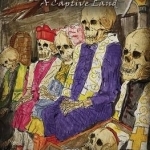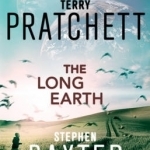BookwormMama14 (18 KP) rated The Lost Girl of Astor Street in Books
Jan 2, 2019
This book is written in first person, but it is nothing like other books with this point of view. Most of the time when I read a book written as first person, I feel like I am simply inside the character's head, getting a front row seat to the way they think and the way they process information that comes their way. With The Lost Girl of Astor Street, Stephanie Morrill takes the first person voice to a whole new level. A level where I felt as though I became Piper Sail. I was processing the way Piper was processing, her thoughts were my thoughts...This added such a deep level of intimacy with the character that I feel like I know Piper like I know myself.
Set in 1920s Chicago, you will be swept into the Jazz Age and will be tempted to dance the night away with Piper and a certain Italian detective. Having grown up in what Piper Sail thought was a safe neighborhood, she soon comes to realize that nothing is as it appears. Has she placed her trust in the wrong people? Will she ever discover what has happened to Lydia? And will the unlikeliest of people, become her greatest champion? Follow "Detective" Sail through the underbelly of Chicago. Uproot lies, reveal truth, and fight for justice for those who can not fight for themselves.
I borrowed The Lost Girl of Astor Street from my local library. I was not required to write a review. All opinions expressed are mine alone.ull review to come.
Hazel (1853 KP) rated On the Origin of Findo Gask in Books
Dec 14, 2018
“Sick, twisted, blasphemous, wrong and very, very funny.” That is how this book, <i>On the Origin of Findo Gask</i> by David McCreight, is described on the back cover. But how accurate is it? “Blasphemous”? Most definitely. “Very, very funny”? Not so much. Although it is obvious that there is an attempt a humour, it is too “sick” and “twisted” for it to be anywhere near hilarious.
Findo Gask is a rather unattractive sixteen-year-old living in the Scottish Highlands. The narrative, recounted from his point of view, alternates between present day and an account of past events. Findo was once a child prodigy until he began questioning religion openly in church. In order to get back at the Christians, who thought he was possessed by demons, he establishes the Darwin Terrorist Organisation along with Cousin Dan. This, however, eventually gets rather out of hand. Now Findo is living with his Gran and his Mum is in hospital with a mysterious illness. He also believes he has sold the universe.
The fact that Findo is a stereotypical, Scottish, working class teenager makes the amount of bad language almost acceptable; although, to tell the complete truth, it did border on excessive.
At first there did not seem to be much of a plot, but once the past and present join up it is possible to connect all the events included in the story, which results in a considerably explosive ending.
As everyone’s take on humour is different there will undoubtedly be people who love this book. It would not be fair to deliberately put people off from reading <i>On the Origin of Findo Gask</i>, yet at the same time it is not recommended for the easily offended readers, particularly those with strict religious principles and a dislike for foul language.
Hazel (1853 KP) rated Havana Sleeping in Books
Dec 17, 2018
<i>Havana Sleeping</i> is a historical mystery novel by British author Martin Davies, which is based on real events that occurred in Cuba during the 1850s. Although the Slave Trade had been abolished in England, there were still people in America and Cuba who would be happy for slavery to remain legal. George Backhouse was posted to Havana, Cuba as a British Judge to take a stand against the illegal slave trading.
Backhouse ends up getting involved in a lot of complicated situations that could potentially spark a devastating war. His path also becomes tied up with the other main character, Leandra Leigh. Whilst most of the characters are real historical figures, Leandra appears to be fictional. A dear friend of hers, a watchman, was murdered during a supposed robbery and although the matter has been closed for a couple of years Leandra is determined to find out the truth – something of limited value in Havana. To begin with Backhouse and Leandra’s investigations seem unrelated, but a connection begins to build up as the story goes on.
In all honesty, the novel was very difficult to get into. There is nothing wrong with the actual writing as such, it is in fact written well and grammatically correct, however there was a lack of excitement in the narrative. It was also difficult to keep track of the characters – admittedly that may have been the point in the case of a couple of people, but as a result it was impossible to connect story. There were a few attempts of showing emotion, mostly surrounding Leandra’s character, yet this failed to arouse much interest.
From a historical point of view, those interested in Cuban and British history of this time period may be interested in reading <i>Havana Sleeping</i> and the author also includes some factual notes at the end of the book, but anyone hoping to get a story of some kind is bound to be disappointed.
Dont be fooled by this opening as I was, there are many twists and turns within this book which take the tale in directions I was not expecting. I always worry when reading a book that has been translated from its original langue, that some of the more subtle meanings may be lost. However with this book I do not feel that I lost and depth or beauty. And whilst there was nothing that stood out in the way of errors or typos the only part I feel that let it down was the ending. Personally it just felt like everything had got really going and then it was done. On the plus side it also meant nothing felt dragged out or overly fluffed.
I would definitely recommend this book and it may be liked by those who enjoyed books such as [b:Spilt Milk|18692830|Spilt Milk|Amanda Hodgkinson|https://d.gr-assets.com/books/1386845140s/18692830.jpg|26541040]or [b:Purge|11163458|Purge|Sofi Oksanen|https://d.gr-assets.com/books/1327881261s/11163458.jpg|3426310]. I want to give it more than 3 stars but I personally need to feel more, and I always use the guidance phase and whilst I liked it I didnt really like it. This is in basic terms, a simple story of life and its issues with unexpected twists which test the characters in ways many people hope never to be tested by.
Phil Leader (619 KP) rated The Long Earth in Books
Nov 20, 2019
Joshua Valiente is an orphan who discovers that he doesn't actually need a box to move dimensions - to Step - he is a natural, like a few others before him that have already discovered what becomes known as the Long Earth and have kept it to themselves. Big business isn't slow to take advantage, particularly the huge, powerful and shadowy Black Corporation, whose distributed super computer Lobsang claims to be the reincarnation of a Tibetan mechanic. Together Joshua and Lobsang will discover a few of the secrets of the Long Earth, as well as witnessing the worst it brings out in humanity.
With this central idea, Pratchett and Baxter tell the tales of various people affected by the events of Step Day in very different ways. As with the rest of humanity, the narrative is restless, keen to both rush out and see how far along the Long Earth it can travel and to watch how it turns the Earth we all know on its head. This is a book of wonders, a little like Gulliver's Travels in finding interesting variations to explore.
Those expecting the usual slew of jokes, gags, footnotes and humorous characters that typify his Discworld novels will be disappointed. There are light touches to the situations and characters that betray his hand but this is straight science fiction by two great authors who between them manage to convey the huge scale of thousands - millions - of Earths while still being able to tell the story from a human perspective.

Becoming Your Best | The Principles of Highly Successful Leaders
Podcast
How do you feel about your personal and professional life? Many people feel like they or their teams...

Dr Fitness and the Fat Guy
Podcast
Losing Weight is as easy as 1,2,3,4 In order to lose weight you have to do four things. Most...

The Dogs of Avalon: The Race to Save Animals in Peril
Book
Greyhounds, bred to be the fastest racing dogs on earth, are streaks of lightning. Beautiful,...

Sicily, a Captive Land
Book
Part political critique, part travelogue, Sicily, a captive land will evoke compassion for ordinary...

11 Oak Street: The True Story of the Abduction of a Three Year Old Child and its Appalling Lifetime Consequences
Book
11 Oak Street is the true story of how the Queen's bankers, Coutts & Co, sent two cashier's cheques...


